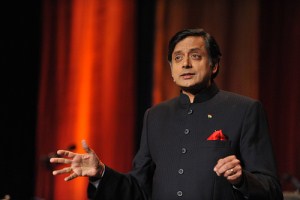
 Hailed as a super-power in the making, India today stands on the cusp of a past, rich in history and a promising future. Its democratic ethos is hailed worldwide; from Canberra to Cairo, India is looked upon as a stabilizing force in the Asian region and a voice for developing countries.
Hailed as a super-power in the making, India today stands on the cusp of a past, rich in history and a promising future. Its democratic ethos is hailed worldwide; from Canberra to Cairo, India is looked upon as a stabilizing force in the Asian region and a voice for developing countries.
As we celebrate our 63rd Republic Day, it is with pride and humility that we can look back upon our civilizational ethos and our pluralistic democracy and realize that these two are strengths, which make us a beacon of light in the region. Quite naturally, it leads one to wonder that why should one just be a soft power? Why not a hard power or a super power?
What is a ‘soft power’? Harvard University professor Joseph Nye first coined the term describing it as a country’s ability to alter the behaviour of others through attraction rather than sticks and carrots. No country in the world can afford to be just a hard power or just a soft power. The desire to influence other countries and make them agree with one’s perceptions and co-opt them is part of every country’s foreign policy.
Can we do that with just carrots and sticks? Not possible, as the United States has realized in its interactions in Pakistan and Afghanistan. Soft power is not merely the act of persuasion. The country would also need to have the ability to attract another country to its way of thinking. For that one needs assets. For example our democracy, non-violent freedom struggle, pluralistic society, ancient and rich culture, educated work force, arts and crafts, computer software industry, Bollywood and cuisine are all soft power assets. A healthy foreign exchange reserve also helps.
Prime Minister Manmohan Singh once said, “The soft power of India in some ways can be a very important instrument of foreign policy. Cultural relations, India’s film industry, Bollywood…I find wherever I go in the Middle East, in Africa people talk about Indian films.” Or Indian doctors, or Indian tech workers or Indian cooks. Each of them is an ambassador. Each one who speaks on behalf of India becomes an instrument of India’s soft power. He or she gives credibility and legitimacy to the Indian way of doing things. It is at once a responsibility, as is a burden.
Shashi Tharoor in his essay on India’s soft power puts it succinctly. “…so many speak about India as a great power of the 21st century when we are not yet able to feed, educate and employ all our people. So it is not economic growth, military strength or population numbers that I would underscore when I think of India’s potential leadership role in the world of the 21st century. Rather, if there is one attribute of independent India to which I think increasing attention should now be paid around the globe, it is the quality, which India is already displaying, in ample measure today- its ‘soft power’.
The only objection I have to the above statement is the word ‘today’. India has always displayed its soft power, albeit unwittingly, unintentionally. From the times of Gautama Buddha or Mahatma Gandhi, from the Kushanas to the Mughals, from Nehru and the Panchsheel, from Tandoori chicken to Raj Kapoor and Amitabh Bachchan, from aapam and avial to M.S. Subbalakshmi and Rukmini Devi Arundale, from pashmina shawls and patola sarees to Tagore and Mira Nair our soft power is constantly at play. See them as products or assets, they have worked for us in subtle and consistent ways to show the world the Indian way of doing things: unhurried, elegant, sensitive, traditional, path breaking and persuasive.
In its 64-year history India has never invaded or dominated another country and despite its huge armed forces and nuclear arsenal, it poses a threat to no country.
We have gone to war four times but always when there was aggression thrust upon us and negotiation and compromise had failed. We have lost territory, never gained in the wars that we fought. This astonishes the world, as they wonder what holds back India to emerge as the super power in the region. Why don’t we flex our muscles? Why do we always seem vulnerable to smaller nations in our neighbourhood?
The simple fact is that we are uncomfortable being seen as a bully. We engage with the global strategic community but as a persuasive power and a co-optive power. Blame or praise Mahatma Gandhi and Gautama Buddha for that. We follow the middle path of peaceful coexistence. It makes us vulnerable but we don’t see vulnerability as a flaw. We build defences not moats. We build bridges not fences.
It is impossible for a state to exercise its soft power without having strong foundations. Hard power is essential for that but not chronic warfare. Kautilya in his seminal work the Arthashastra says that compassion, morality and religious principles have no place when a country is under threat, unless they are useful for bringing victory in war. For sure, we posses hard power, we just choose not to exercise it.
By Samita Prakash, Editor: News at Asian News International

Be the first to comment